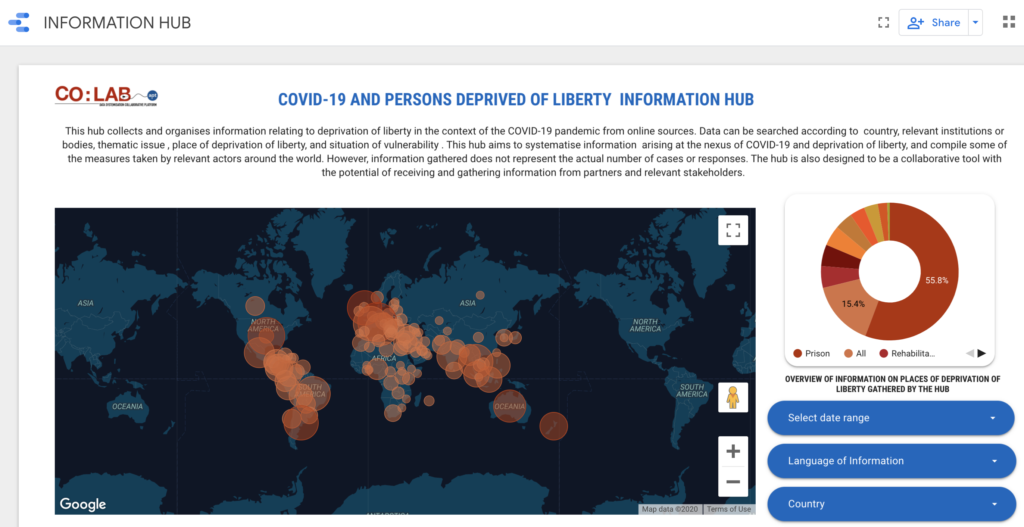The COVID-19 pandemic has shown a spotlight on the overcrowding and horrific conditions in prison around the world, generating increased interest and media attention on the crucial issue of the impact of COVID-19 on people deprived of liberty. In this new environment, and despite the increased media attention, accurate information on both good and bad practices and measures taken by governments, international organizations, and civil society can be difficult to find, analyze, and compare. To face this challenge, WOLA has joined the Association for the Prevention of Torture (APT) project, the Information Hub on COVID-19 and Persons Deprived of Liberty. The hub is a digital one-stop center for different types of information pertaining to persons deprived of liberty including news reports, guidelines, legislation, declarations or reports by international bodies, as well as other practical tools. Furthermore, the hub is designed to increase the accessibility and visibility of targeted information that could benefit actors working in detention oversight, the criminal justice and penitentiary systems, psychosocial support, and social rehabilitation. Information can be searched according to specific categories: language, country, relevant body or institution, specific detention issue, type of place of deprivation of liberty, and persons in situations of vulnerability.
Other project partners include the Centre for Justice and International Law (CEJIL), Harm Reduction International (HRI), Penal Reform International (PRI), the National Committee for the Prevention of Torture of Argentina, and the National Council of Justice in Brazil. In collaboration with the members of the working group on women, drug policy, and incarceration, WOLA will provide relevant thematic information and contextual insights to enhance the quality of information gathering and the content of the hub. The information gathered will enable our partners to identify key trends related to persons deprived of liberty, such as prions’ condition, suspension of physical contact with family, and implementation and impact of non-custodial measures such as pardon and humanitarian release of prisoners. Together, we are looking to better understand the impact of COVID-19 on people deprived of liberty in order to produce advocacy resources that will be useful to national, regional, and international stakeholders working on reducing women’s incarceration.


